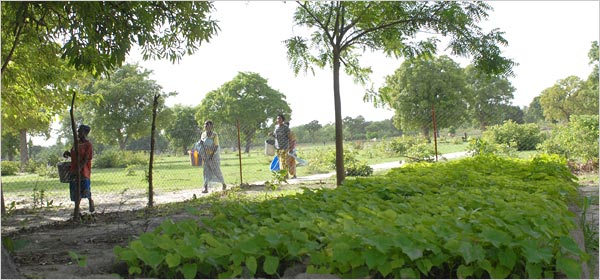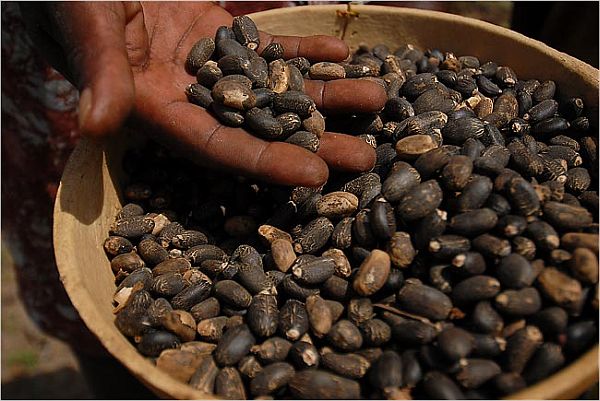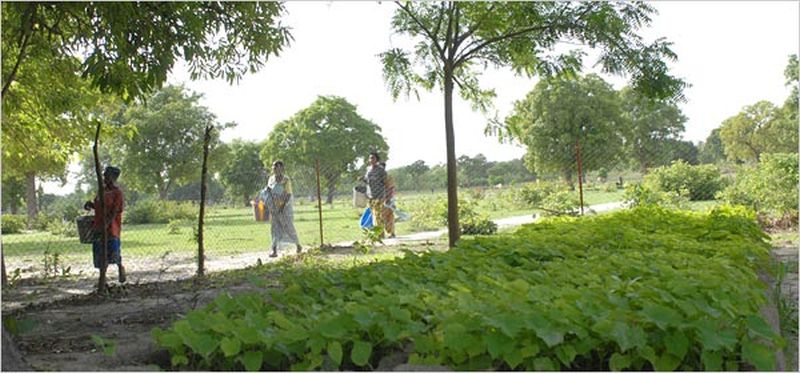
While the debate to grow food or fuel carries on, scientists are looking for plants that produce biofuels butsustainable. For instance in Mali, Africa, Jatroph mainly used as a natural fence between rows of their regular crops could very well become an ideal source of biofuel.
Originating in the Caribbean, the jatropha was spread as a valuable hedge plant to Africa and Asia by Portuguese traders. The hardy jatropha is resistant to drought and pests, and produces seeds containing up to 40% oil. When the seeds are crushed and processed, the resulting oil can be used in a standard diesel engine, while the residue can also be processed into biomass to power electricity plants.
Why is Jatroph suitable?
It can grow in marginal soil or beside food crops, it does not require too much of fertilizer, probably just the nutrient-rich seed cake left after oil is pressed from its nuts, it requires little water other than rain and yields many times as much biofuel per acre planted as corn and many other potential biofuels. Therefore, in nations where growing food crops is the priority it can be planted in places where food does not grow well.
If farmers want they can double their earnings by planting a row of jatropha for every seven rows of regular crops and still get their usual yield from the field.

In a race to become more energy independent and even, earn through exports of biofuel many countries have laid aside acres for the growth of Jatroph.
This poor African nation hopes to provide to provide its poor rural villages with electricity from Jatroph agrofuel. Already the shrub serves two purposes: as a living fence that keeps grazing animals off their fields (the smell and the taste of the plant repel grazing animals) and a guard against erosion, keeping rich topsoil from being blown away by the harsh Sahel winds.
Why Jatroph is still not fully acceptable?
It takes about four kilograms (about 8.8 pounds) of seeds to make a liter of oil. If this catches up the farmers might just start growing Jatroph and not food crops. If that happens the economy of this already, poor nation will crumple. So growing even Jatroph has its pitfalls, the future might see the cost of growing the plant increase leveling all profits.
Another major drawback is that if it becomes popular it might result in concentration of ownership of arable land for biofuels , because of which small holding, poor farmers will be forced off their land. So what do you think, does this weed have potential to sustainable grow as a biofuel?
Source: The independant



